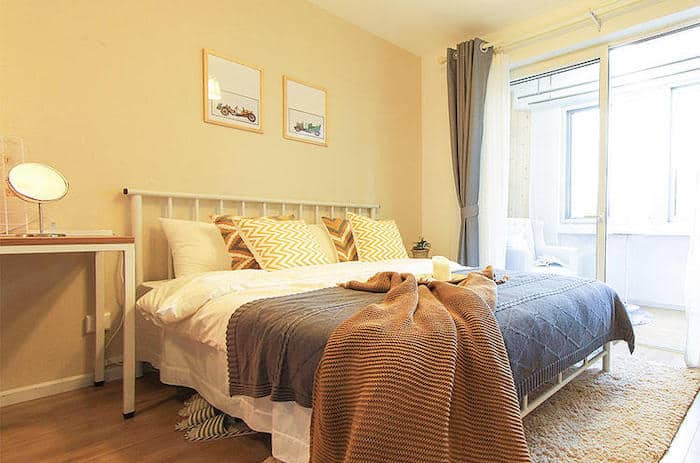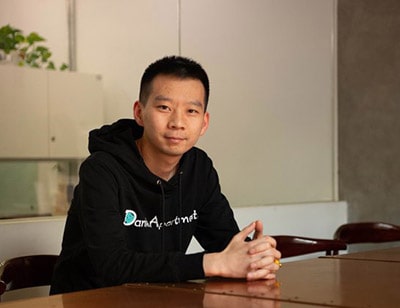
Danke and Qingke have been accused of cheating tenants and landlords
A pair of loss-making Chinese rental apartment outfits are coming under increasing pressure from authorities, following allegations of financial exploitation.
The Shenzhen Housing and Urban-rural Construction Bureau said last Friday that it had launched an investigation into the business practices of Beijing-based Danke, while Morgan Stanley-backed Qingke is also under fire from tenants and landlords.
The allegations come as China’s apartment rental sector has ground to a halt during the pandemic, triggering a cash crunch which has squeezed both Danke and Qingke, forcing them to miss payments to property owners on their leases.
With Danke and Qingke not meeting their payment obligations, some property owners have cut off the water and electricity in the apartments. In some cases, landlords have evicted occupants of their apartments, despite the tenants having made payment on their rental loan arrangements with the publicly listed apartment platforms.
The two companies, both of which held IPOs on US stock exchanges in the last seven months, lease apartments long-term from individual owners and then upgrade the units before subletting them to tenants. The firms secure agreements for a full year’s rent from occupiers, most of whom are squeezed into deals which require them to make payment via rental loans managed through third party lenders affiliated with the platforms.
US IPOs, Mainland Shenanigans
Since March this year the Shenzhen Consumer Council has received 219 complaints from tenants and landlords about Danke, accusing the rental operator of engaging in exploitative business practices during the pandemic, including raising rents while suspending payments to landlords.

Danke CEO Gao Jing said the allegations are “inaccurate”
Already in early February of this year, Wang Hong, a landlord in Chengdu complained on Mingtiandi that, while Danke was still leasing his five bedroom apartment to four occupants, the company had told the property owner that payment would be suspended due to the COVID-19 crisis.
That accusation came just a few weeks after Danke in January raised net proceeds of $128 million by listing on the New York Stock Exchange, with Chase Coleman’s Tiger Global, Luckin Coffee backers Joy Capital and Jack Ma’s Ant Financial among the principal investors.
Also in February, Deng Jincan, a property owner who had leased his Shenzhen apartment to Danke informed Mingtiandi that the NYSE-listed platform had stopped making payments on its rental agreement.
Qingke, which received early backing from Morgan Stanley, raised $46 million from a NASDAQ initial public offering last November.
Denying the Allegations
In addition to the unhappy landlords, tenants of both Danke and Qingke have complained that they have been left saddled with their rental loans regardless of whether the firms are meeting their lease obligations or even if they are able to still occupy the property.
Other occupants have complained that the mechanics of the financing contracts were not made clear at the time they signed their agreements.
Danke – which is listed on the New York Stock Exchange under the name of its parent company, Phoenix Tree Holdings – has denied the allegations.
In a statement issued in response to last Friday’s move by the Shenzhen regulator, Danke said that the reports are inaccurate, while Shanghai-based Qingke called the allegations “false rumours” in an announcement last week – although admitting the company was experiencing financial difficulties.
After a previous government investigation into the business practices of apartment rental operators, the Ministry of Housing and Urban Rural Development said last December that, by the end of 2022, no more than 30 percent of a company’s total rental income should come from rental loans.
Danke and Qingke will have to restructure their businesses dramatically to meet the ministry’s stipulations, since both companies currently collect payment from at least two-thirds of their tenants via rental loans, according to the firms’ first quarter results.
Bleeding Investors’ Cash
The controversy surrounding the firms comes as Danke and Qingke continue to bleed cash as they lease more properties from landlords under long-term rental agreements.
Danke clocked its fifth consecutive year in the red last year by recording losses of RMB 3.4 billion ($480 million) – more than double its RMB 1.4 billion loss the year before. During those twelve months, the company increased its portfolio of apartments by 85 percent to 438,309 units.
Qingke also continued its loss-making streak for the 2019 financial year, seeing its operational losses increase by 5.1 percent to RMB 448.3 million, while at the same time expanding its portfolio to 97,297 apartments from 83,948 the year before.
It’s pretty astonishing that anyone ever thought of this as a long term sustainable business model or that such large sums of money could be raised off the back of it. But I guess the game is present an idea as new disruption business of the century, fleece the investor for heaps of cash, try to pivot into something more sustainable quickly and hope for the best.
Little sympathy for anyone that actually fell for it.
NYSE might consider a ‘common sense’ test before accepting such listings.